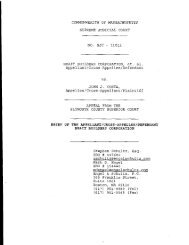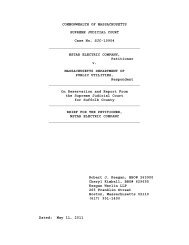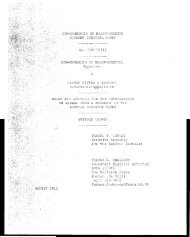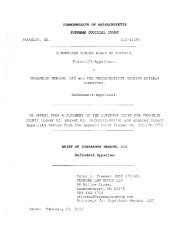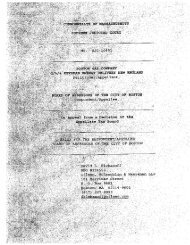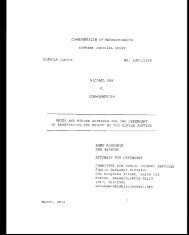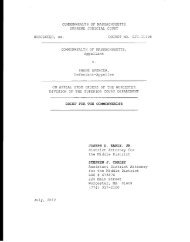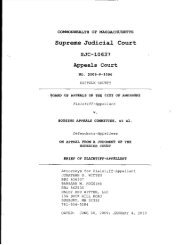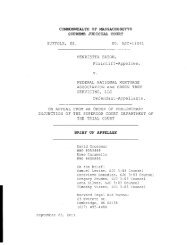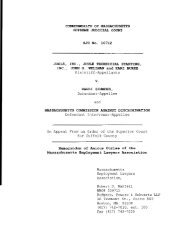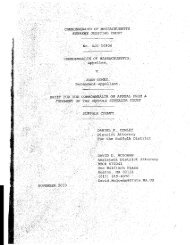463 Mass. 353 - Appellee Commonwealth Brief - Mass Cases
463 Mass. 353 - Appellee Commonwealth Brief - Mass Cases
463 Mass. 353 - Appellee Commonwealth Brief - Mass Cases
Create successful ePaper yourself
Turn your PDF publications into a flip-book with our unique Google optimized e-Paper software.
with CSB, shows an indisputable nexus between the<br />
defendants' drug dealing activity and their residence.<br />
Therefore, <strong>Commonwealth</strong> v. Pina, 453 <strong>Mass</strong>. 438<br />
(2009), the case principally relied upon by Ronald<br />
Mendes (see RonM.Br. 47-48), is inapposite. In Pina,<br />
"the only particularized information contained in the<br />
affidavit connecting the defendant's observed drug<br />
activity with the apartment in which he lived was a<br />
single observation of the defendant driving from the<br />
apartment to a location where he sold an unspecified<br />
quantity of cocaine to the informant." Pina, 453 <strong>Mass</strong>.<br />
at 442. But in this case, there was far more evidence<br />
that drugs were being stored in the home. There were<br />
not only the direct observations of CSA but also CSB's<br />
statements about his prior drug purchases from the<br />
defendants, close by their residence, which were later<br />
confirmed by two controlled buys where the defendants<br />
left the apartment and went directly to the arranged<br />
location. (I.R.A .. 7-8.) See Blake, 413 <strong>Mass</strong>. at 829.<br />
Accordingly, Ronald Mendes's motion to suppress<br />
was properly denied.<br />
21



